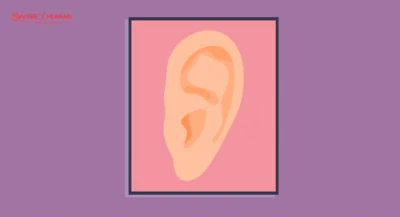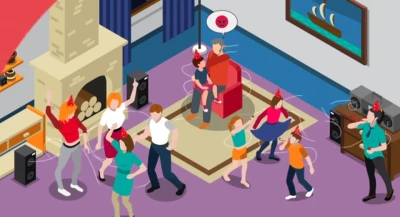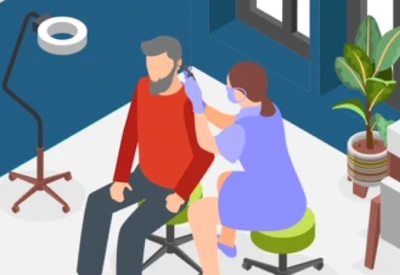Resources
At Wise Hearing, we believe that knowledge is the key to addressing hearing-related concerns. That’s why we offer additional resources to help you learn more about your hearing.
How the Ear Works
 The ear is a remarkable organ that allows us to hear and perceive sound. Here’s how the ear works:
The ear is a remarkable organ that allows us to hear and perceive sound. Here’s how the ear works:
- The outer ear directs sound waves into the ear canal and toward the middle ear.
- The middle ear contains the eardrum and three small bones called ossicles that amplify and transmit sound vibrations to the inner ear.
- The inner ear contains the cochlea, a spiral-shaped structure responsible for converting sound vibrations into electrical signals that get sent to the brain.
- The brain interprets sound signals, and we perceive sound.
The Impacts of Untreated Hearing Loss
Hearing loss can have a wide range of impacts on your life, especially if left untreated for a long time. Here are just some of the impacts of untreated hearing loss:
Emotional Effects
Hearing loss can lead to emotional distress, including feelings of frustration, embarrassment, and isolation. The constant struggle to understand conversations can take a toll on self-esteem and overall emotional well-being.
Decreased Quality of Life
Hearing loss can limit your ability to fully participate and engage in various activities and environments. It may be challenging to enjoy social gatherings, concerts, or even simple conversations with loved ones.
Cognitive Decline
Research has established a link between untreated hearing loss and cognitive decline, including an increased risk of developing conditions such as dementia and Alzheimer's disease.
Safety Concerns
Hearing loss can compromise your safety. Hearing loss makes it hard to detect warning sounds, such as fire alarms, car horns, or approaching vehicles.
Employment Challenges
Untreated hearing loss can impact job performance and career advancement. Struggling to hear instructions, communicate with colleagues or clients, or participate in meetings and conference calls can hinder professional growth opportunities.
Strained Relationships
Hearing loss can strain relationships with family, friends, and colleagues. The frustration and miscommunication that often result from untreated hearing loss can lead to misunderstandings and conflicts.
Types of Hearing Loss
There are different types of hearing loss, each with its own causes and treatment options. The three main types of hearing loss include:
Sensorineural Hearing Loss
This type of hearing loss occurs when the hair cells in the inner ear or the auditory nerve that connects the ear to the brain are damaged. Sensorineural hearing loss is often permanent and can be caused by factors such as aging, prolonged exposure to loud noise, certain medications, and genetic predisposition. Treatment options may include hearing aids or cochlear implants, depending on the severity of the hearing loss.
Conductive Hearing Loss
Conductive hearing loss is caused by a problem in the outer or middle ear that prevents sound from reaching the inner ear. Common causes include earwax blockage, fluid accumulation due to infections or allergies, perforated eardrums, or structural abnormalities. Treatment options for conductive hearing loss may include medication, surgery, or hearing aids.
Mixed Hearing Loss
Mixed hearing loss is a combination of sensorineural and conductive hearing loss. This type of hearing loss may require a combination of treatment options to address both the underlying causes and the symptoms.
Understanding Tinnitus
 Tinnitus is a common condition characterized by the perception of sound, such as ringing, buzzing, or hissing in the ear. Only you can hear the sound. Tinnitus can be caused by exposure to loud noise, age-related hearing loss, earwax blockage, certain medications, and underlying medical conditions.
Tinnitus is a common condition characterized by the perception of sound, such as ringing, buzzing, or hissing in the ear. Only you can hear the sound. Tinnitus can be caused by exposure to loud noise, age-related hearing loss, earwax blockage, certain medications, and underlying medical conditions.
While there is currently no cure for tinnitus, there are management strategies available to alleviate its impact on daily life. These strategies include sound therapy and sound masking, which uses external sounds to mask or distract from the perception of tinnitus. Our experienced team at Wise Hearing can provide personalized guidance and support for managing the effects of tinnitus.

At Wise Hearing...
Our hearing instrument specialists will help you explore your options, and find the best hearing aids for your hearing needs and lifestyle. Contact us today to take the first step towards better hearing.
